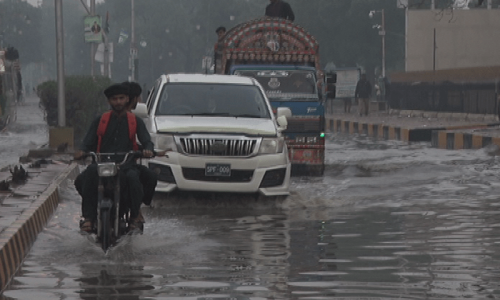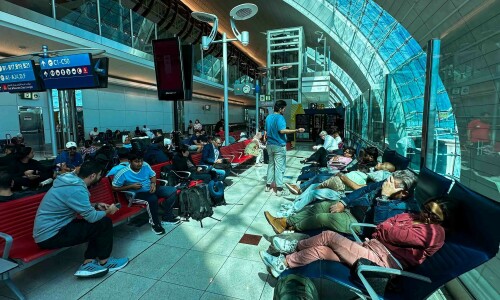ISLAMABAD: Justice Syed Mansoor Ali Shah of the Supreme Court on Wednesday wondered why Pakistan Tehreek-i-Insaf (PTI) Chairman Imran Khan never objected to the exclusion of the armed forces from the ambit of the National Accountability Ordinance (NAO), when some of the country’s largest business entities were run by them.
“Why have the armed forces been excluded from NAO when they were running the largest businesses and when the largest balance sheets are of the armed forces?” Justice Shah observed, also asking why the petitioner never objected to it on grounds of discrimination.
Justice Shah is one of the members of the three-judge Supreme Court bench that had taken up a challenge by the former prime minister to recent amendments made to the accountability law.
When a serving army officer is running a business, he is liable to be prosecuted under the accountability laws (in case of any wrongdoing), Justice Shah observed.
However, senior counsel Khawaja Haris Ahmed, on behalf of petitioner Mr Khan, cited Section 5(n)(iv) of the amended NAO to suggest there was no exception granted under the law to the army officers holding or who had held a post in any public corporation, bank, financial institution or other organisation established, controlled or administered by or under the federal government or a provincial government, or a person who was a civilian employee of the armed forces.
Chief Justice of Pakistan (CJP) Umar Ata Bandial, who was heading the bench, highlighted the need for a balance between the fundamental rights of a citizen and the public interest, adding that he was looking at certain cases and realised that society suffered when an individual or accused was relieved of corruption charges.
But the court needed to understand how it had become difficult for the prosecution under the changed accountability law to prosecute those accused of committing corrupt practices and how it would lead to people’s suffering by breaching their rights, the CJP observed.
Without naming anyone, CJP Bandial also cited a case wherein one of the accused had been acquitted of all the charges, but the pecuniary benefits were drawn through benamidars that were inherited properties. Therefore, the court was asking for identification of solid flaws in the law, he observed.
The counsel argued that the huge sums of money spent on conducting inquiries and preparing corruption references against the accused belonged to the people and should not go to waste.
“Can the Supreme Court sustain this unreasonable law where less than Rs500 million will go out of the domain of NAO but if the matter concerns Rs500m or more, it will be very difficult to prove?” he asked.
“So we should strike down a law for unreasonableness?” Justice Shah observed.
He said the wrong impression was being created that after making a wrong decision, the decision maker would go home without being challenged and that the NAO was the only law that dealt with corruption matters. The offender might not fall into the NAB’s net, but he could be caught in some other net, he emphasised.
Published in Dawn, October 20th, 2022















































